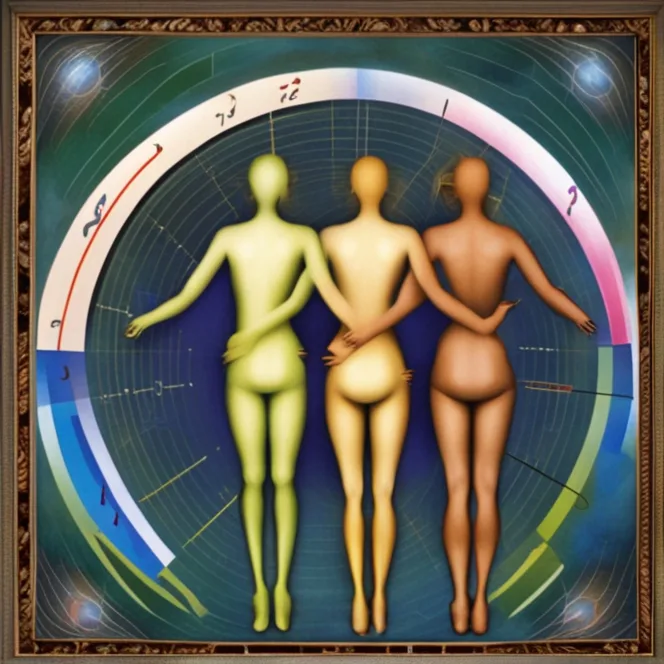
Exploring Human Biorhythmic Cycles
Explore the fascinating concept of biorhythms and their influence on physical, emotional, and intellectual faculties in humans.
article by Adrian Wallace
Biorhythms theory presents an intriguing perspective on the cyclical nature of human lives. This concept proposes that our daily lives are significantly influenced by rhythmic biological cycles. Historically, the idea dates back to the 19th century and has since evolved into a holistic approach to understanding one’s physical, emotional, and intellectual well-being. The notion of biorhythms postulates that these three primary cycles begin at birth and influence us throughout our lifetimes. It's a fascinating intersection between biology and philosophic thought, inviting individuals to explore deeper self-awareness and synchronization with their natural rhythms.
The Three Core Cycles
The biorhythms theory identifies three main cycles: Physical (23 days), Emotional (28 days), and Intellectual (33 days). Each cycle is said to influence different aspects of our lives. The Physical cycle governs hand-eye coordination, strength, and endurance. The Emotional cycle affects creativity, mood, and perception, while the Intellectual cycle is thought to influence analytical thinking, learning, and problem-solving abilities. When a cycle is at a high point, individuals might feel at their peak in the corresponding area. Conversely, during low points of a cycle, people may experience challenges or feel less capable.

Calculation of Biorhythms
Calculating one's biorhythms involves using one's date of birth as a starting point. From there, the cycles are charted using mathematical models to predict the high, low, and critical days within each cycle. During critical days, when a cycle crosses from high to low or vice versa, individuals might feel out of balance or experience indecisiveness. Although numerous devices and software applications can perform these calculations today, the methodology's accuracy and scientific basis are often debated among researchers and skeptics.
Practical Applications
Despite the debates, some people use biorhythms to make key decisions or plan important events, aiming to align them with favorable days in their cycles. For example, choosing to negotiate a deal or participate in a sports competition when one's Physical and Intellectual cycles are high could theoretically increase the chances of success. Although no scientific evidence conclusively supports the effectiveness of this approach, the placebo effect or simply increased self-awareness may account for perceived improvements in decision-making or performance.

Critiques and Controversies
Biorhythms have faced their fair share of skepticism within scientific circles. Critics argue that the theory lacks empirical support and cannot be reliably used to predict everyday outcomes. It has also been noted that the cycles' lengths are arbitrary and not linked to any biological process. Nonetheless, biorhythm enthusiasts continue to endorse the theory’s potential benefits, underscoring that anecdotal evidence and individual experiences should not be dismissed outright.
Moving Forward with Biorhythms
As you delve into the world of biorhythms, it's essential to approach the subject with an open yet critical mind. Whether or not one believes in the efficacy of these cycles, exploring biorhythms can be a valuable exercise in introspection and self-regulation. By paying attention to one's moods, energy levels, and intellectual capabilities, individuals might find patterns that help them understand themselves better and make proactive choices for personal and professional development.
Published: 12/12/2023
Modified: 12/12/2023
More predictions
Come back here soon to learn more about yourself and your future


Examining The Reality Of Biorhythms
Explore the concept of biorhythms to understand if there's scientific support for this cycle-based approach to predicting personal vitality and compatibility.


Biorhythms: Life's Natural Cycles
Explore the meaning of biorhythms and how these natural cycles can influence physical, emotional, and intellectual states in our daily lives.